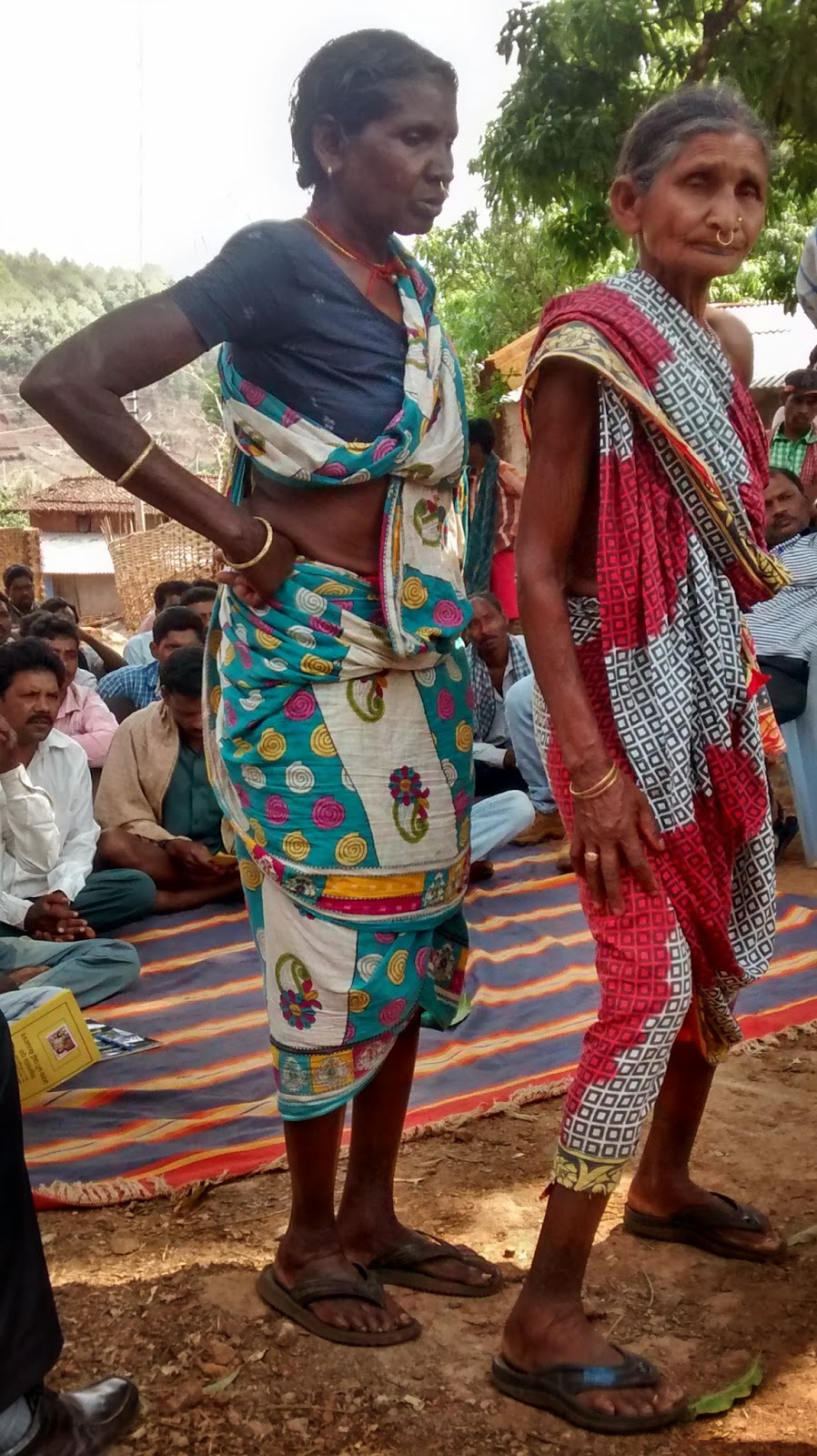What do you call this - a delayed empowerment or a mere desperation?
For the past eight to nine months, during my visits to various villages in Kalahandi district in Odisha, I observed an interesting phenomenon regarding elderly women. Be it in a group or individually, they seem to be more vocal about their 'rights and entitlements'. They are fearless, less apprehensive, outspoken and more 'rational'. The transformation from 'purely traditional' to 'somewhat rational' over time, might have been facilitated by a multitude of factors - both external and internal.
I feel that the main reason behind this 'delayed empowerment' in elderly women is 'NOTHING'. Yes, "Nothing" empowers women. For years, these women have been someone's daughters, someone's sisters, someone's wives or someone's mothers. In the old age, suddenly they find themselves to be not under the care of or care about any of them. They are nothing now. They are forced to stand up and speak for themselves. If they don't, survival gets more and more tougher for them.
Firstly, in that old age, lack of regular income, and inability to earn their living, force them to a 'desperation' to fight back. Secondly, the apprehension that haunted them through out their lives, as to what the society, their male counterparts would think or say seems to have disappeared in their final phase. Lastly, the fear of being socially stigmatized seems to have vanished totally in front of the old age desperation and the new-found strength in having no strings attached. In the absence of all those who relied on them for "honour", I think these women are able to put traditions aside and act rationally.
Around June 2014, in a huge block level gathering to review MNREGA scheme, I witnessed this woman, slowly yet steadily and boldly climbing onto the dais and dared to question the Block Development Officer (BDO) regarding some entitlement she was due to receive.
In an another incident around September 2014, I attended a cluster level meeting where in representatives from various self help groups in that area were present. Even when a few young and middle aged women were shy and fearful to even say their names, an elderly woman sitting at the back was exceptionally overreaching. She seemed to have answers to all our questions and solutions to all the problems.

 Very recently in April 2015, we conducted a gram panchayat level meeting, to find out about people's grievances. It was headed by Sub Collector of our district. Firstly, there were hardly any women attending that meeting. Secondly, even the young woman Sarpanch, did not speak a word. Then these two women walked in confidently and told the Sub Collector that they were not receiving pensions regularly. It might seem as a very small and trivial act for us. But when one tries to put oneself in their shoes, the context will be more clear. It is a big deal for the tribal women who would have hardly done such a thing before. It might be like a kindergarten child going to speak in front of an audience, for the first time.
Very recently in April 2015, we conducted a gram panchayat level meeting, to find out about people's grievances. It was headed by Sub Collector of our district. Firstly, there were hardly any women attending that meeting. Secondly, even the young woman Sarpanch, did not speak a word. Then these two women walked in confidently and told the Sub Collector that they were not receiving pensions regularly. It might seem as a very small and trivial act for us. But when one tries to put oneself in their shoes, the context will be more clear. It is a big deal for the tribal women who would have hardly done such a thing before. It might be like a kindergarten child going to speak in front of an audience, for the first time.
What do you call this - a delayed empowerment or a mere desperation? I say, it is the both. They seem to be telling the society "We do not care for you and your stigmas anymore. We are free". And it is not a coincidence that all the cases I quoted are of widows and mostly from single women households. Yes, they are nothing. And I think - "Nothing empowers these women". This phenomenon finds further support in how the solar grandmothers are making the Barefoot College, Tilonia's efforts in solar energy training successful (Details here). You might have as well observed in your own grand mothers also, how liberal and rational they can get.
Skip this para if you are not a Game of Thrones follower :)
[To convey my point on "Nothing" more effectively I am borrowing an incident and a quote from George R R Martin's Game of Thrones. Samwell Tarly, a night's watch member, a coward at heart manages to kill a white walker and when inquired how he could do so, he replies - "I had to do something other wise Gilly (woman he was trying to save) and her baby would have been killed" (desperation). He further says - "I wasn't myself. I was nothing then. Nor son of someone or a friend of someone. When you are nothing, there is nothing to be afraid of" (Empowerment).]
This phenomenon shows how much the society is holding back women with unnecessary attachments, rules, conditions, restrictions and all the chains that do not let women take that much needed first step. Those who are able to break these shackles early, are able to stand up for themselves much in advance. Few of the rest do so much delayed at the fag end of their lives. The rest go unheard.
